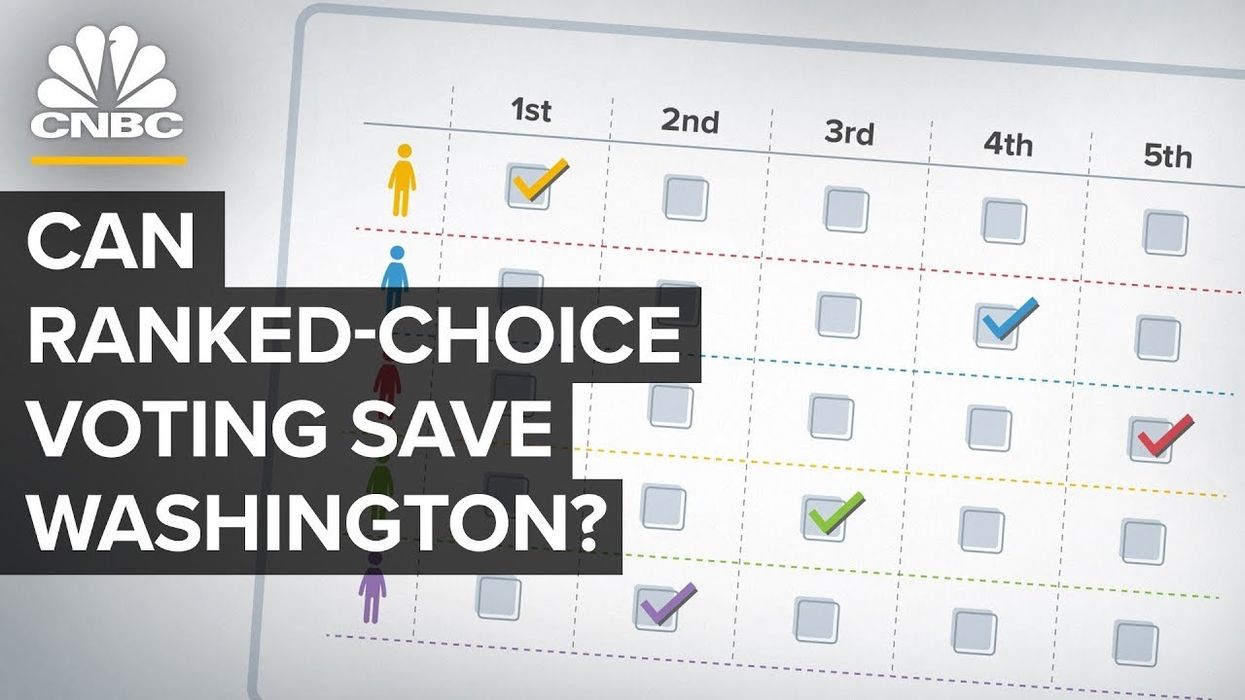Griffiths is a contributor to Independent Voter News.
Voter Choice for Massachusetts 2020 announced Wednesday that it has smashed the signature requirement to get ranked-choice voting on the November ballot. Campaign workers say they are on pace to collect the most signatures for a ballot initiative in Massachusetts history.
In an email to supporters, the campaign said it has collected 17,084 raw signatures, and is averaging over 800 new signatures per day. It needs 13,347 verified signatures by June 17 to go before state voters in the general election.
If approved, Massachusetts in 2022 would become the second state, after nearby Maine, to adopt the system for electing all state executive officials, legislators and members of Congress.
"Thanks to our amazing volunteers, we're right on track to meet and exceed our campaign goal of 25,000" the campaign said.
According to the campaign, the signature validity rate is around 73 percent. This means it appears likely that the campaign has already cleared the necessary bar it needs to get to November, and should have more than enough cushion by the deadline.
The coronavirus pandemic has threatened the success of many ballot initiatives across the country. However, Voter Choice Mass scored a major legal victory that allowed campaign workers and volunteers to collect signatures electronically in the second stage of the signature gathering process. The state already certified over 111,000 signatures for the statewide ranked-choice voting campaign in December.
Voter Choice Mass credits its success to the motivation of its volunteers, who it says have put in the time to reach thousands of Massachusetts voters every day — even in these uncertain times.
In RCV elections, which have also been embraced by a score of cities, voters list candidates for each office in order of preference. A candidate receiving a majority of first-place ballots wins. Otherwise, the candidate with the fewest No. 1 votes is eliminated. Then the ballots ranking that candidate No. 1 are redistributed based on their No. 2 rankings. This process is repeated until one candidate reaches a majority. It is allso called an "instant runoff" system.
Visit IVN.us for more coverage from Independent Voter News.




















